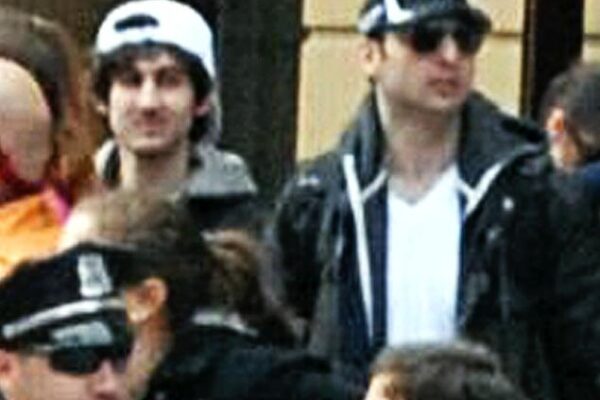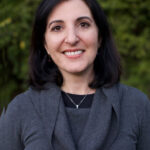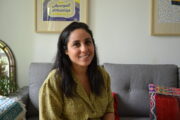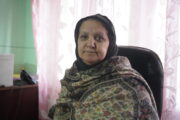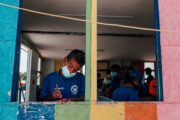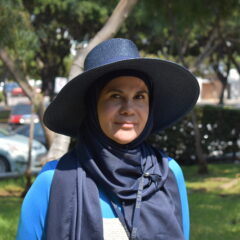(Dzhokhar Tsarnaev, left, and his brother Tamerlan in an FBI surveillance photo)
One year ago, I celebrated my fifth wedding anniversary with my mother-in-law, my two kids and my husband in our home in Boston—on lock-down. Outside, an unprecedented manhunt for the young men responsible for the Boston marathon bombing a few days earlier was underway. Inside, we sat in front of our television, watching the news and listening to the radio, trying to understand, once again, what compelled young men to commit an abominable act of violence and terror.
It was a day that eerily reminded me of September 11, 2001. I was in New York on September 11—a journalism student who was supposed to cover the municipal elections scheduled for that day. The sky had been clear and beautiful in New York, just as was in Boston last year. I received countless messages from family and friends checking to make sure we were okay, just as I had a decade earlier. And, just as before, I was angry. First and foremost, I was irate at the horror and the bloodshed. And, second, I was furious that these men had once again put innocent Muslims on the defensive. I knew that Muslim-Americans across the country had heard the news of the Boston bombing and immediately uttered a prayer and a plea: “Please, God, let it not be a Muslim.”
More than a decade ago, my first question had been, how could people who claimed to share my faith commit such atrocities against civilians? This time, after years of exploring such questions and with two young children, my thoughts were more selfish: “Why can’t my kids just grow up without the stigma of a religion associated with violence? Why can’t they grow up like other kids without having to defend themselves for something that has nothing to do with them?”
The attacks of September 11 would send my journalism career into years spent writing about Muslims and Islam. I covered a rapidly changing Middle East in the aftermath of the Afghanistan and Iraq wars. I tried to understand the different types of Islam that were manifesting themselves both in the United States and abroad and to explain these shifting currents to my readers.
But the manhunt on April 19, 2013 somehow hit even closer to home for me. I had no empathy for the attackers of September 11, who mostly hailed from Saudi Arabia. I felt no sympathy for them or their stories. But, sitting in our living room last year, listening to NPR interview Dzhokhar Tsarnaev’s classmates from Cambridge Rindge and Latin School left me feeling both anger and pity for this young man. His former classmates were in utter disbelief that their friend, who seemed so well-adjusted, could commit such an act—that the friend they had hung out with, had conversations with, had just seen a few days earlier, was, indeed, a Muslim terrorist.
It left me wondering what the American Muslim community could have been done to save this young boy, to pry him from the grips of his older brother or to recognize the dangerous changes in character that preceded this tragedy.
This was a boy who reminded me of so many of the boys I had grown up with. I had known a few who had briefly flirted with more radical ideas, especially once they hit college. They had rebelled against some of their mosque leaders, had given sermons that espoused varying degrees of militancy. Some even donned robes and military fatigues on their campuses.
But ideas and actions are different things.
The main difference, to me, was that many of these kids had their families and communities closely watching them. I remember telling a friend that her younger brother had showed up to a Friday prayer wearing Hezbollah fatigues. She had assured me that they were well aware of what he was up to and that her father was addressing it.
A year later, we now know that the Tsarnaev brothers had been radicalized by online videos of Anwar al-Awlaki. We know that the older brother had been quite volatile, that he had been ejected twice from a Boston mosque, and that despite having an American-born wife and child—and despite his attempts to represent the U.S. in the Olympics—he had felt increasingly alienated from the society that he lived in. In retrospect, his path to radicalism isn’t hard to discern.
But Dzhokhar’s path seems less certain. He was well adjusted and well liked by those around him. He showed no sign that he felt alienated from the society that he lived in. But he adored his older brother and apparently strove to emulate him.
The tragedy of Dzhokhar Tsarnaev is that he had no parents and no community around to help guide him away from his older brother’s radical ideas.
After the attacks of September 11, outsiders asked, where are the voices of American Muslims? But for years, Muslim-American organizations have consistently and loudly condemned such attacks. This year, however, with the launch of a new initiative by the Muslim Public Affairs Council, there are signs that the American-Muslim community is indeed maturing, moving from the defensive to the proactive. Last week, MPAC introduced the “Safe Spaces Initiative: Tools for Developing Healthy Communities.”
For years, Muslim-American groups have worked closely with law enforcement officials to address radicalism within their communities. Through this new initiative, MPAC aims to provide a systematic, replicable, community-based approach to help Muslim-American communities and campus faith-based groups prevent extremism.
The broader message is that, however rare, radicalism is indeed a problem in the Muslim community and that responsibility for monitoring and stopping such actions must include Muslim-Americans. It acknowledges that although the vast majority of Muslims may not be extremists, Muslim communities are best able to spot problematic behavior and, arguably, best equipped to handle it.
The idea that Muslims may become major players in rooting out extremists is heartening as I think of the younger Tsarnaev brother one year after the Boston bombing. Maybe, through clear community involvement and guidance, the next young man can be brought back from the brink of extremism and a future attack averted, all in the name of Islam.
Rhonda Roumani is a contributing fellow with the USC Center for Religion and Civic Culture and a journalist fellow with the Spiritual Exemplars Project.
